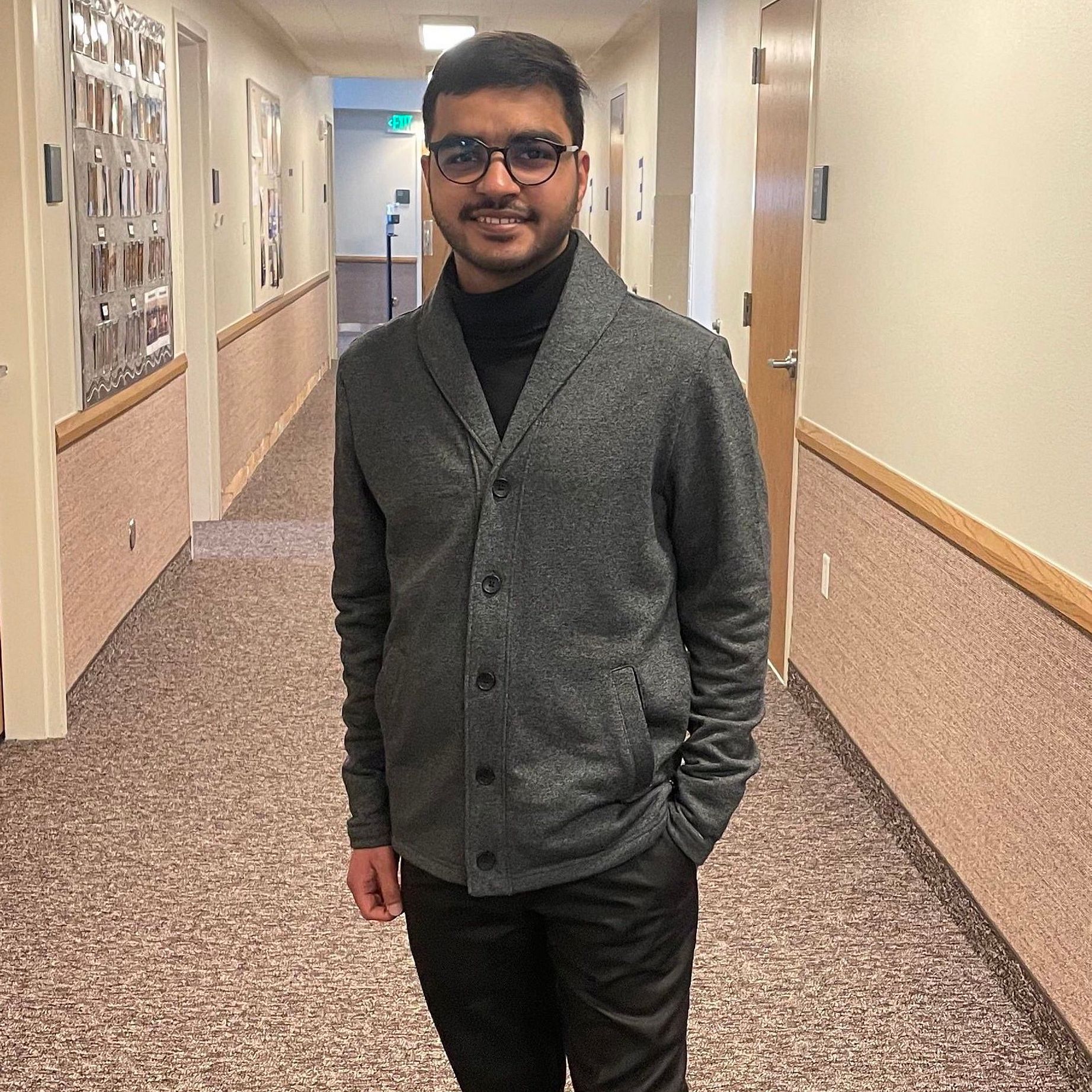
May 6, 2022
Raghav Awarded Campbell Scientific Graduate Fellowship
Raghav Kataria is a PhD student in the KAABiL lab. He is currently working on pathogen-host protein-protein interactions using computational tools and various molecular biology techniques in his research in bioinformatics.
Raghav was recently awarded the "Campbell Scientific Graduate Fellowship", which is provided by "Apogee Instruments".

May 4, 2022
New HPC Admin: Colin Bernhardt
Colin is a Computer Engineering BS student who has recently started as the KAABiL HPC System Administrator.
He will help to ensure that the high-performance computer cluster at the KAABiL lab works properly.
He also helps maintain the website and helps install the software you can use on the HPC. If you are experiencing any problems with the site or the HPC, let him know.

May 25, 2021
New Undergrad Student Joined: Andrew Jouffray
Andrew is a computer science student and software developer. He currently works on developing a method to create datasets for deep learning image
recognition tasks, enabling robots to generate their own training data.
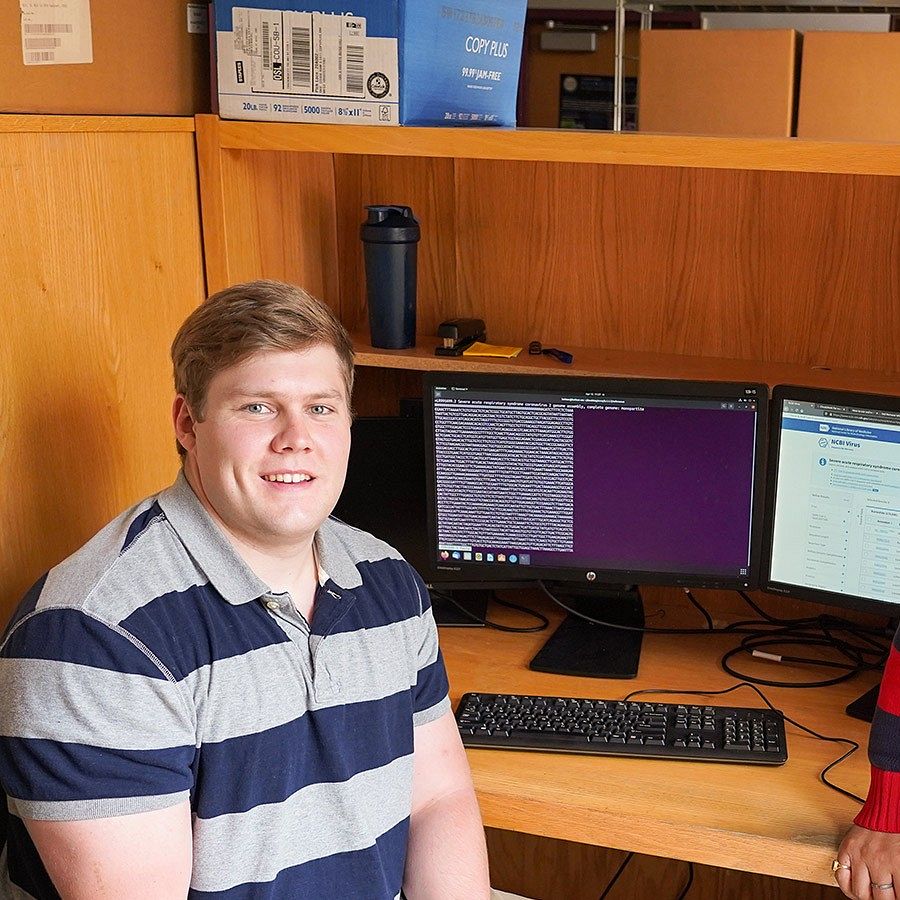
May 24, 2021
Kolton Receives URCO Grant
Student researcher Kolton Hauck is mentored by Rakesh Kaundal, assistant professor of bioinformatics in the PSC department,
and investigates protein-protein interactions (PPIs) that are necessary for the SARS-CoV-2 virus to gain access to host cells,
replicate and proliferate.

Mar 3, 2021
New PhD Student: David
David is a CS PhD student from Colombia. He worked full-time as a full-stack software developer for 6 years while finishing his
bachelor's degree in Software and Computer Engineering and got a MSc. degree in Computational Biology.
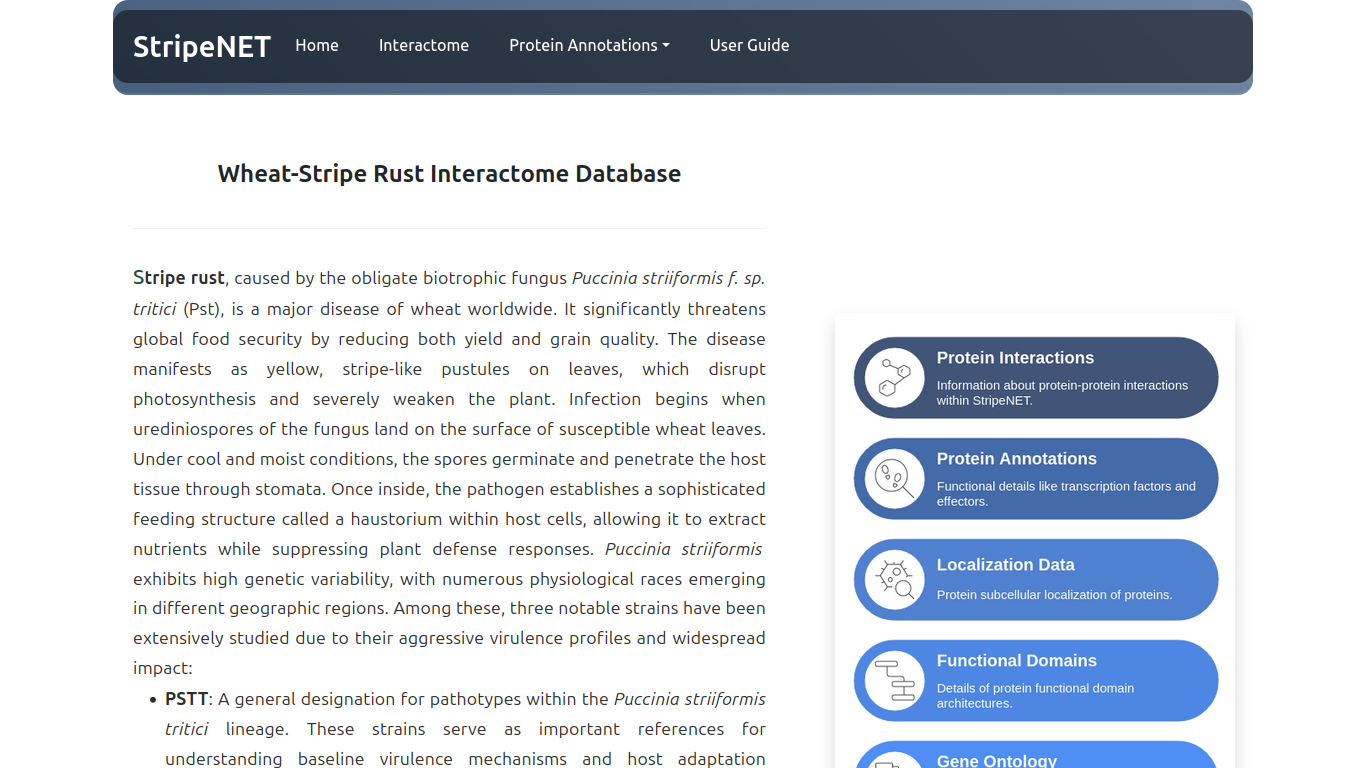
October 12, 2025
StripeNET: A Wheat-Stripe Rust Interactome Database
StripeNET is a systems biology tool that maps protein-protein interactions between wheat and stripe rust pathogen strains, helping researchers uncover molecular mechanisms of disease and develop durable resistance in crops.
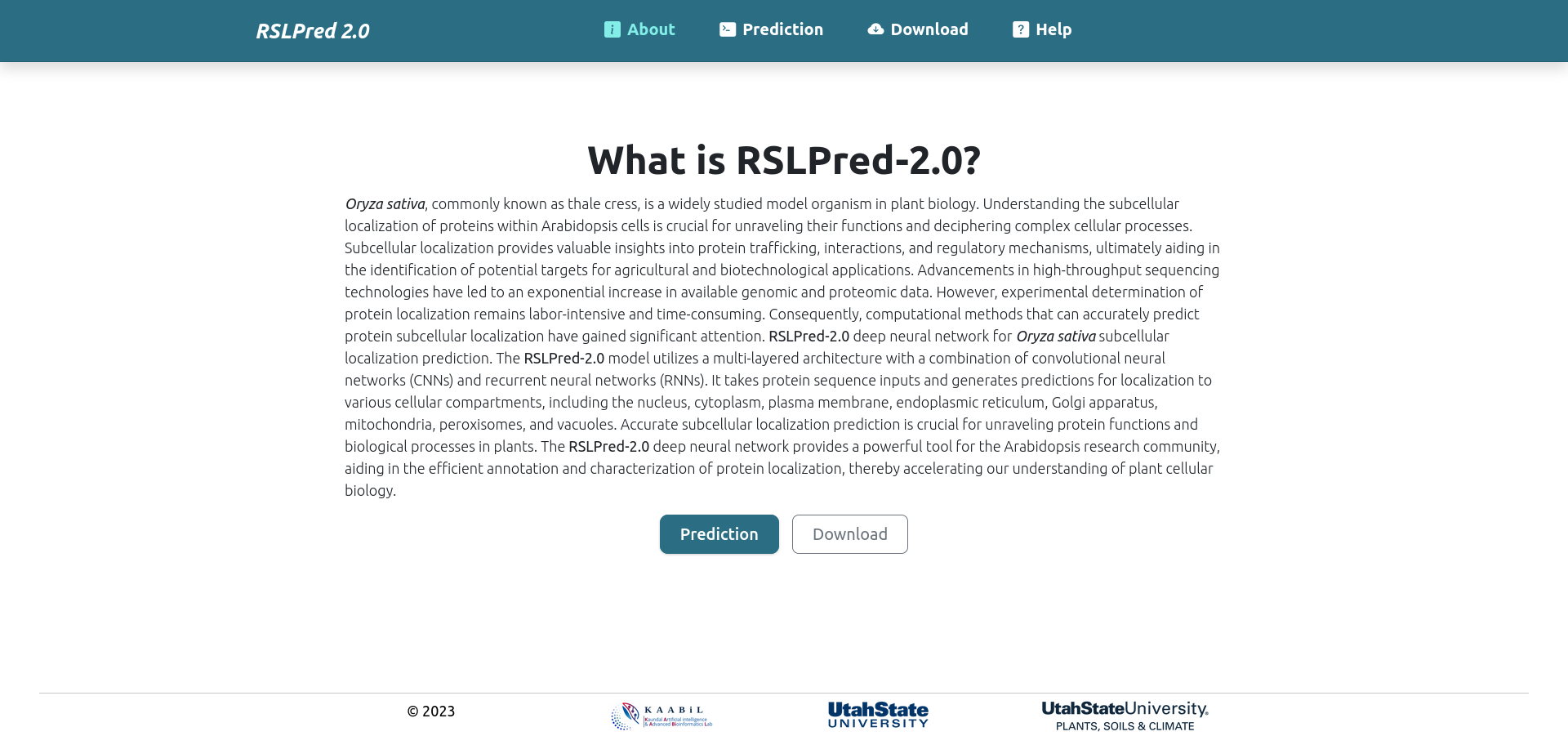
July 4, 2025
RSLpred2: An Integrated Web Server for the Annotation of Rice Proteome Subcellular Localization Using Deep Learning
Oryza sativa, commonly known as rice, is a widely studied model organism in plant biology. Understanding the subcellular localization of proteins within rice cells is crucial for unraveling their functions and deciphering complex cellular processes. Subcellular localization provides valuable insights into protein trafficking, interactions, and regulatory mechanisms, ultimately aiding in the identification of potential targets for agricultural and biotechnological applications.
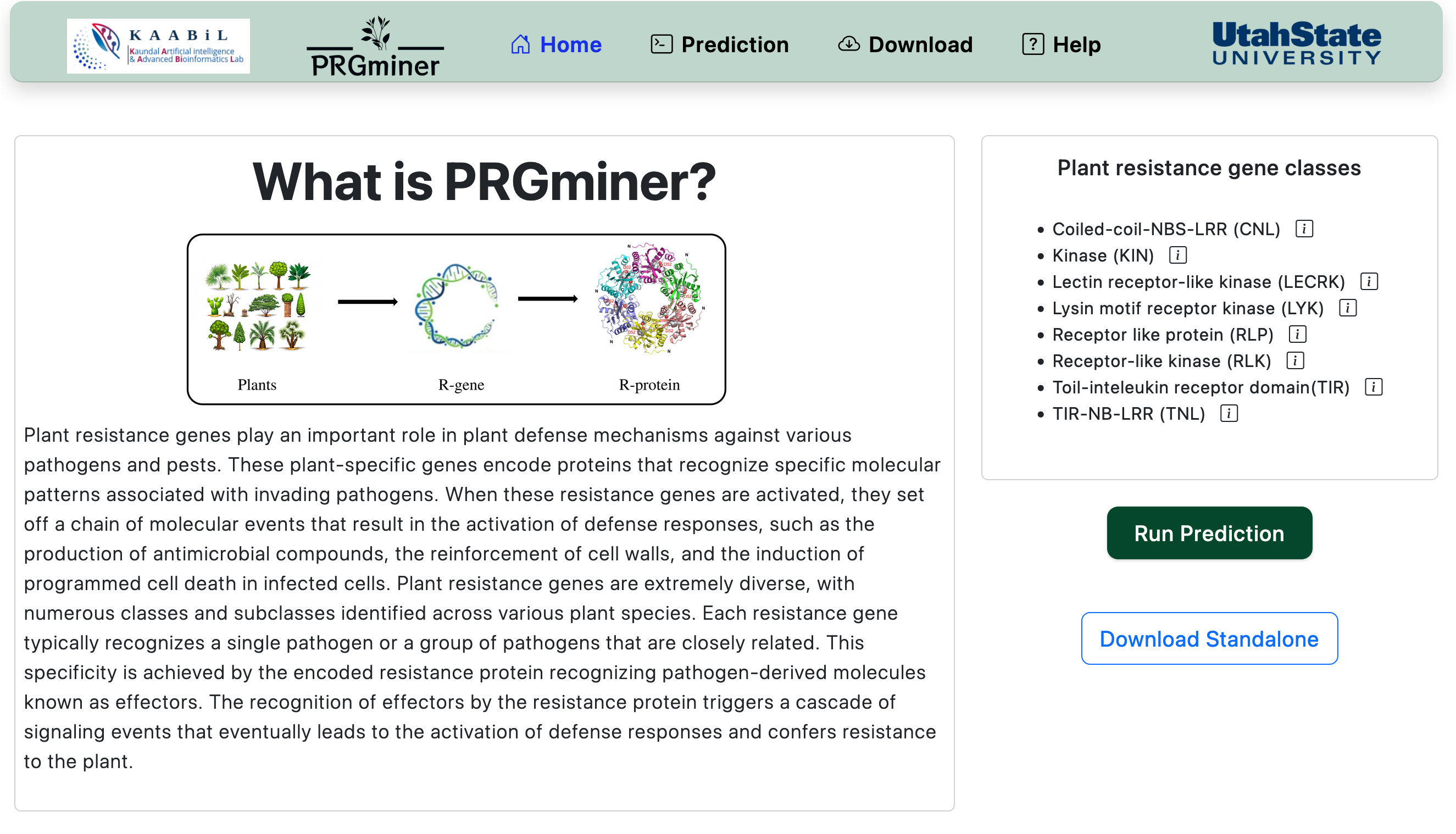
June 2, 2025
PRGminer: harnessing deep learning for the prediction of resistance genes involved in plant defense mechanisms
A powerful deep learning tool for identifying and classifying plant resistance genes (R-genes) in plant genomes.
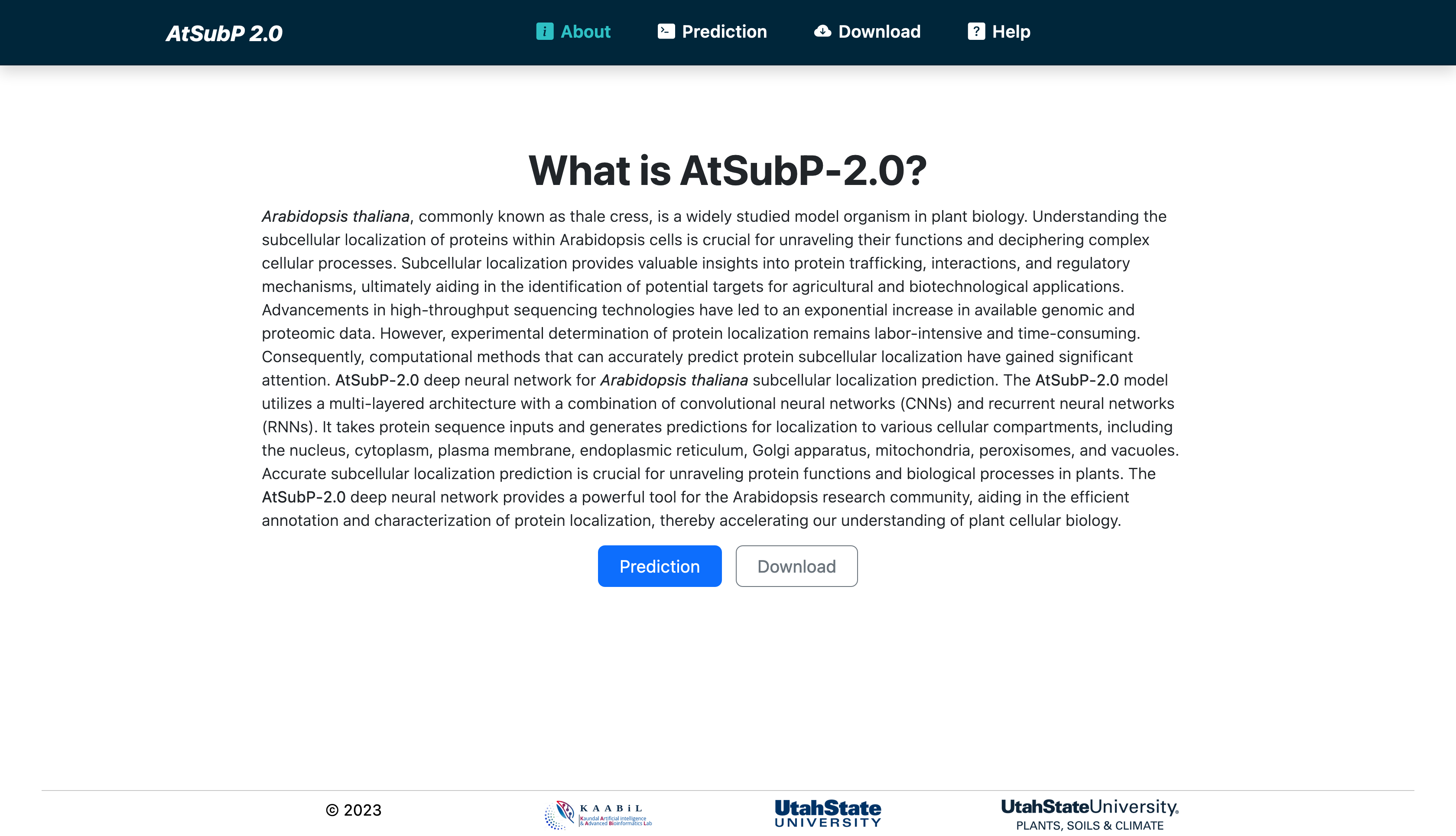
February 9, 2025
AtSubP‐2.0: An integrated web server for the annotation of Arabidopsis proteome subcellular localization using deep learning
The AtSubP-2.0 model utilizes a multi-layered architecture with a combination of convolutional neural networks (CNNs) and recurrent neural networks (RNNs). It takes protein sequence inputs and generates predictions for localization to various cellular compartments, including the nucleus, cytoplasm, plasma membrane, endoplasmic reticulum, Golgi apparatus, mitochondria, peroxisomes, and vacuoles.
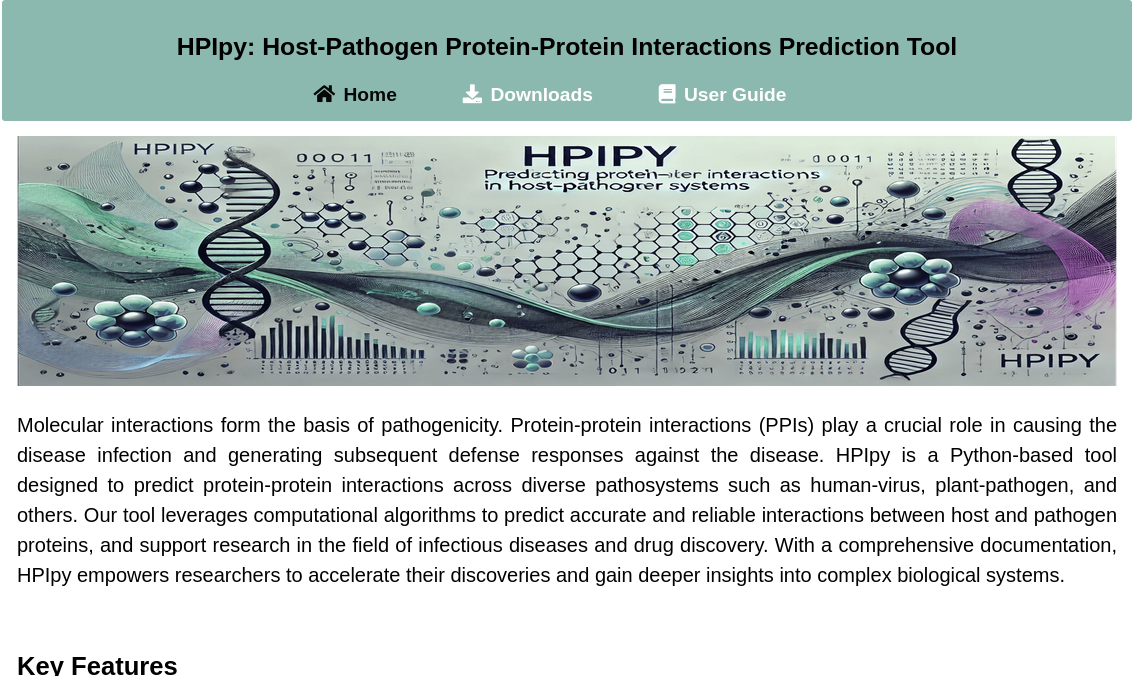
November 20, 2024
HPIpy: A Host-Pathogen Protein-Protein Interactions Prediction Tool.
HPIpy leverages computational algorithms to predict accurate and reliable interactions between host and pathogen proteins.
December 14, 2021
USU Today
USU Student Uses Undergraduate Research Grant to Train AI for Weeding
The artificial intelligence revolution is coming, and there is nowhere to hide — at least, not for weeds.
November 4, 2021
USU Today
First International Heroes Night
Dr. Rakesh Kaundal has been selected for the 2021 International Faculty Recognition Award.
August 9, 2021
USU Today
NIH Funds USU Researchers' Work on Fathers' Nutrition and Children's Health
Dr. Kaundal is a Co-PI on a $1.56M research grant from the NIH.
April 6, 2021
USU Today
Uncovering Genes that Protect Alfalfa against Salinity Stress
Salt stress is an example of big data bringing immense benefits to plant science.
May 24, 2021
USU Today
Students Receive Grants to Conduct Undergraduate Research
Kolton Hauck is using big data to investigate diverse strands of SARS-CoV-2 virus.